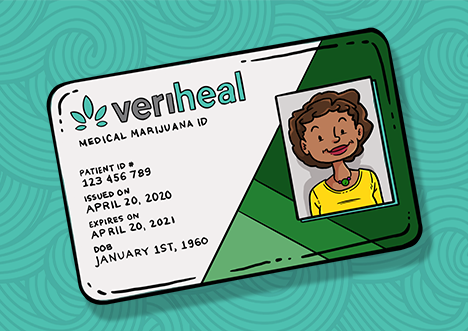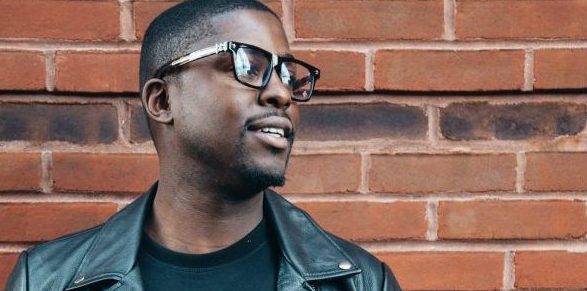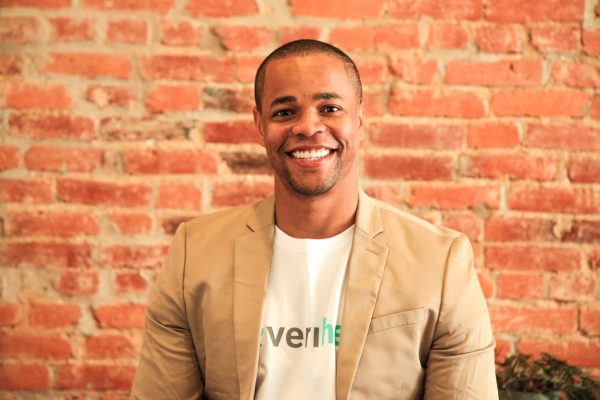Tuesday, April 21, 2020
The Literature of Plagues Gives Us Words to Live By
from Wired https://ift.tt/3eFIuwH
via
Six-Word Sci-Fi: Formulate a Defense Against Digital-Age Autocrats
Coders Who Survived Human Trafficking Rewrite Their Identities
Film Photography Can Never Be Replaced
The Supercilious Side Effects of F/X
Portable Printers Bring Your Smartphone Photos to Life
When Government Fails, Makers Come to the Rescue
Fujifilm's Street-Friendly X100V Checks All the Boxes
Fusion Energy Gets Ready to Shine—Finally
These 360-Degree Cameras Have Seen It All
Stones, Clocks, and What We Should Actually Leave Behind
Monday, April 20, 2020
Google's Head of Quantum Computing Hardware Resigns
Black techies behind Veriheal seek to de-stigmatize cannabis
Former corporate Fortune 500 coworkers, and serial entrepreneurs Joshua Green and Samuel Adetunji took their passion for technology, business, and cannabis to create the innovative Cannatech platform Veriheal – providing medical marijuana cards to patients.
Cannatech platforms like Veriheal — formerly named OnePath Medical — are online spaces involving technology connecting patrons to people in the cannabis industry; such as doctors and patients.
READ MORE: Kelis wants to get you baked with ‘Cooked with Cannabis’ trailer
What seems to make Veriheal unique from other Cannatech platforms alike is its hyperfocus on education. Veriheal focuses not only on facilitating relationships with patrons and the cannabis industry, but it helps people to understand the major benefits of the plant.

theGrio caught up with Green and Adetunji to discuss how patrons in need can obtain medical marijuana cards through Veriheal, how the platform is changing the negative stigmas surrounding cannabis, and the importance of keeping service at the core of their company culture.
“Sam and I cofounded Veriheal on the premise of helping other people and making things easier for them,” Green told theGrio. “What we did when we first started out, was test out a concept and then built an environment where patients could connect with doctors, based on patterns we noticed.
“The demand for cannabis medical cards was there and Sam and I are tech people so from that point really early on, we wanted to use technology to advance the company [Veriheal]. So we moved into a Cannatech platform.”

Veriheal is a mobile and desktop-friendly website that operates like an app, even though it is not available for download right now. According to Green, it took over a span of nine months to build out the initial framework for the platform, and since then has been running smoothly for two years.
As the cannabis industry continues to grow, spotting key Black industry players is still scarce.
“We both saw an opportunity in an industry where people like us or that look like us, have gotten in trouble for it in the past,” Adetunji said, referring to the disproportionate number of African Americans caught up in the criminal justice system over marijuana.
“We saw an opportunity to get involved in an industry where we can also make a difference and make a statement that people like us can do this legally. We wanted to do something legitimate and that we knew would take off.”
READ MORE: Canada now world’s largest legal marijuana marketplace
Green added, “We are very passionate about cannabis … we enjoy it very much. But it also had to do with timing and opportunity.”
“Technology is on the forefront and data has been the topic of conversation for the last 15 years. The last five years have been about cryptocurrency, and cannabis has now taken the new frontier. It was the best avenue for us and we haven’t looked back since.”
Veriheal connects patrons to cannabis-educated physicians through an online portal. Eligibility for medical marijuana cards depends on the ailments a person may have, but ultimately it boils down to your zip code.
“Basically it all depends on where you live,” Adetunji explained.
“Like in California cannabis is recreationally available, but that’s not the case everywhere else … so everyone won’t be able to get a medical cannabis card. But people who actually use it for medicinal reasons will want to get that card. For the most part almost anyone can get access to a medical marijuana card, there’s a ton of benefits from cannabis.”

The initial step for someone to obtain a medical marijuana card is through a consultation set up with a physician through the Veriheal website. Although Green and Adetunji focus primarily on facilitating the relationships between the patients, physicians, and the online community with education, they do not have to deal with any production or transportation of the plant.
“That’s what the consultations with the doctors are for. We created the platform where we have physicians with extensive education on cannabis and how it heals and helps the body. Depending on that conversation with the doctor, it will give that patient information on if cannabis will help them or not,” said Adetunji.
“A lot of this is trial and error. Some strains will help patients for different ailments. But all of our doctors believe in, and love the plant. They have studied it and most use it as well. Our hope is that as time goes on all insurance companies will take care of costs for this. We’re just scratching the surface.”
Read more: Beyond the Smoke: cannabis for health, not a high
There are many benefits to a patron getting cannabis from a licensed dispensary versus anyone in the streets, the VeriHeal owners argued.
“I mean every marijuana smoker has gotten cannabis from the general guy down the street before, but in tenfold, you could be getting something from someone who isn’t even sure of what they are giving you,” Adetunji said.
“They may not know if it’s a sativa or indica. You may not be getting the right weight of what you actually are trying to purchase. The whole idea could be sketchy. Dispensaries give you peace of mind,” he adds. “You know what you are getting and you can walk out not feeling like you did something illegal with a receipt in your hand. Purchasing it on the street can be like rolling dice.”

Today, which marks the popular cannabis holiday “4/20,” Veriheal plans to continue to change the negative stigmas surrounding the cannabis plant.
“One thing that differentiates us from other companies in the market — including other platforms and dispensaries — is in addition to service, we put a big emphasis in our company on education,” Green said.
“We spend a lot of money in generating creative content that will live forever online. We give a lot of free education online. Every month we hyperfocus on changing the stigma of cannabis. We’re slowly starting to see things change as cannabis is viewed as more of a medicine.”
READ MORE: ‘Last Prisoner Project’ calls for release of cannabis prisoners during COVIS-19
Illegal marijuana distribution and possession are still leading causes of incarceration especially for Black men. However, Green and Adetunji, who are also Black cannabis users, are working their way to the forefront to encourage the legalization of marijuana nationwide — and they’re doing it through Veriheal’s education.
“We’re all for it,” Adetunji said. “People should know that dispensaries offer products that regular patrons can’t have access to. We see a tremendous growth in the number of patrons that want to see doctors and get a card for different reasons like tax benefits, the different products they can get, and peace of mind.
“The only concern we would have is the abuse of cannabis because you know, you can abuse anything. With the medical cannabis cards there is a cap on what you can purchase.”
As the stressors continue to rise during COVID-19, Green and Adetunji ensured that their company is accomodating its employees and the patients who use their services.

The pair launched a scholarship fund called the Innovation in Cannabis Scholarship, which will award thousands of dollars to students as a relief for families impacted by the pandemic. They will also donate funds to various organizations every month.
Business, computer science, or nursing students who can see the potential growth in the cannabis industry, or any student with a direct or indirect interest in cannabis can apply.
“One thing that’s really important for Sam and me as key industry players is the importance of giving back to the patients and communities that helped us,” Green said.
Read more: Marijuana delivery business sales skyrocket during quarantine
Despite the toll that COVID-19 has had on various businesses, the VeriHeal founders say they have managed to stay afloat — and plan to keep it that way.
“We’ve gone from a company of three people to 30 in just two years,” Green said. “During COVID we are able to serve enough patients where no one at Veriheal has lost their jobs. We all love the work that we do.”
For more information on Veriheal and scholarship opportunities, visit www.Veriheal.com and follow @Veriheal on social media.
The post Black techies behind Veriheal seek to de-stigmatize cannabis appeared first on TheGrio.
from TheGrio https://ift.tt/2zhpILN
via
Lady Gaga’s *Together at Home* Raised $128 Million for Covid-19 Relief
Trump tweets bizarre campaign video mocking Obama, Biden
Donald Trump tweeted out a new campaign video this morning mocking Joe Biden the presumptive Democratic presidential nominee.
The ad uses “deepfake,” a synthetic media which replaces one person’s image with another, to superimpose former President Barack Obama’s face over Allstate pitchman, Dennis Haysbert.
READ MORE: Trump campaign gets called out for racism in ad attacking Joe Biden
The original commercial is a relatively new spot from Allstate featuring the actor turned spokesperson.
In the ad, Haysbert and friends are watching a basketball game that is interrupted by a commercial. “Not another commercial,” one of the friends says with a sigh. The ad within an ad features Haysbert pitching Allstate.
The friends try switching to another channel, but there’s a commercial there too featuring Haysbert.
Exasperated, his friends all look at him and he replies, “What?” with a smirk and shrug.
In the Trump campaign video, the commercial that plays features Biden giving a speech that drifts off-topic. The clip is from a 2017 speech in Delaware where he stated: “So I learned about roaches. I learned about kids jumping on my lap. And I’ve loved kids jumping on my lap.”
The Trump ad uses deepfake to put Obama’s head on Haysbert’s body.
— Donald J. Trump (@realDonaldTrump) April 20, 2020
Deepfake technology has become popular recently on social media often harmlessly replacing one celebrity’s face with another. However, there is concern about the technology which has also been used in revenge porn and for financial fraud.
READ MORE: Media mogul Byron Allen sues Nielsen for breach of contract
In 2018, the Malicious Deep Fake Prohibition Act was introduced in the Senate and in 2019, the DEEPFAKES (Defending Each and Every Person from False Appearances by Keeping Exploitation Subject) Accountability Act was introduced in the House of Representatives.
Several states have legal protections against the use of deepfake technology. In California, Assembly Bill 730 prohibits the distribution of malicious deepfake audio or visual media targeting a candidate running for public office within 60 days of their election.
The post Trump tweets bizarre campaign video mocking Obama, Biden appeared first on TheGrio.
from TheGrio https://ift.tt/3cCuxOd
via
Coronavirus News Fatigue Is Officially Setting In
This Veteran Journalist Created A Newsletter To Give Black Folks Important Coronavirus News

The rapid spread of COVID-19, or the novel coronavirus, has ravaged communities in the U.S. and across the world. In major cities such as New Orleans, Chicago, and Milwaukee, a majority of the new cases have been African American patients. Internet conspiracies and a historic mistrust of the medical field has only made many not go to the hospital. One journalist is looking to change the way black people stay informed about the virus outbreak.
Veteran journalist Patrice Peck has introduced a new newsletter dedicated to giving the black community important and up-to-date coronavirus news. Peck says they will be sending out about three emails every week containing a variety of news stories and opinion essays related to the coronavirus pandemic pertaining to the black community who are disproportionately suffering from the virus compared to other races in the United States.
“As a black woman and freelance journalist passionate about writing stories for us, I’ve been desperately brainstorming constructive ways to lend my writing skills to help suppress the coronavirus disease (COVID-19) and pandemic,” Peck wrote in the newsletter’s first story. “At the same time, for a *long* time, I’ve been wanting to write more original stories independent from any publication, for my own audience, and to start a newsletter as a way of practicing that. So I decided to combine all of these ideas and dedicate my newsletter SpeakPatrice to highlighting coronavirus news for black folks, both stories written by other journalists and by me, Patrice Peck.”
She took to Twitter to make a formal announcement with information on how to sign up.
On April 5, I launched “Coronavirus News for Black Folks,” a weekly newsletter focused on news about the coronavirus disease (COVID-19) and pandemic as they directly relate to us Black folks.
Please consider subscribing & sharing: https://t.co/vxxnIXKkv9 pic.twitter.com/yXZg11ykEE
— Patrice Peck (@SpeakPatrice) April 14, 2020
from Black Enterprise https://ift.tt/2KiD8JF
via
Michael Arceneaux On Launching New Book ‘I Don’t Want To Die Poor’ During the COVID-19 Crisis

Michael Arceneaux, New York Times best-selling author of I Can’t Date Jesus: Love, Sex, Family, Race, and Other Reasons I Put My Faith in Beyoncé, has recently launched his latest masterpiece in I Don’t Want to Die Poor. Launching this time around, however, has brought some unique challenges due to the COVID-19 pandemic.
I Don’t Want to Die Poor
In I Don’t Want to Die, Poor Arceneaux, a Howard University grad who majored in broadcast journalism, speaks about the perils of student loan debt, tackling both the emotional and financial toll of having such a heavy burden, in a way that only he can—with laugh-out-loud-humor that triggers deep thought. In true Arceneaux-style, his essays have a mix of political stabs, pop culture references, heart-jerking stories, and laughs. Lots of laughs.
“I always try to make people laugh and make people think,” he told BLACK ENTERPRISE. A lot of people have been saying the book is so timely now in light of the pandemic. The book was already timely. The things I talk about – inequality, the healthcare system, how we lose people needlessly, debt, bill collectors, reality tv. It’s a mix of real-life and I think it talks about money in a pragmatic, honest way.”
He believes that while I Don’t Want to Die Poor is really dark in some aspects, it’s also really funny. “If you want a mix of both, this is the book for you. I never want to depress people. You may tear up a little, but you’ll laugh. And I think now more than ever, we need to be laughing.”

Inequality in America
Outside of making us chuckle, Arceneaux’s books do something else ridiculously well – eloquently speak to inequality and the injustice that blacks face on a daily basis due to things outside of their control.
When asked who should read the book the author stated, “I think Americans, in general, need to read as many perspectives about inequality as possible, and my perspective is that of a black gay man from Houston, Texas. Working-class folk.”
He went on to share that while it’s about his plight with private student loan debt, it’s much deeper than the figures owed.
“It’s really not just about the financial debt that we have but about the emotional debt that some of us carry and how that’s exacerbated by the inequality of this country and how the system is designed against us.”
In comparing the two books he says, “I Can’t Date Jesus is about the beauty in finding the freedom to figure out who you are on your own terms. I Don’t Want to Die Poor is about the fact that true freedom is expensive. Choice is expensive.”
He continued, “The pandemic is exposing every facet of inequality in American life and that includes the student loan debt crisis, which was already essentially my generations’ sub-prime mortgage crisis. This is going to be a painful year all around if that does not get addressed very, very soon. Because those lenders aren’t going to be so benevolent for very much longer and that’s concerning.”
Launching a Book During a Pandemic
It goes without saying that this is a tough time for everyone, and things have been no different for the best-selling author. Releasing I Don’t Want to Die Poor on April 7 has created many challenges for him. “I don’t remember what a sleep pattern is,” he joked.
“Buy the book. Please, please, please…support if you can…it’s particularly difficult due to it’s a pandemic and as usual, Donald Trump is sucking the air out of everything,” Arceneaux pleaded.
He had to cancel his book tour and interviews on top of dealing with shipping issues since some purchasers are experiencing delays now that essential item deliveries are being prioritized.
Arceneaux believes that all retailers can use support at this time. From the indie book stores to the bigger chain stores. “Grab the book wherever books are sold. However you can support, please support. The economy is in the hands of a racist gameshow host with cognitive decline. Lord, help us,” he chimed.
The Silver Lining
Through it all though, Arceneaux is looking for the rainbow in the storm. “I am grateful to have the opportunity to have a book out, but releasing during the pandemic is quite a thing.”
He is at home doing what he can from his tiny apartment in Harlem and is appreciative of platforms like Zoom that have made interviews like this one possible. He knows there are worse things and for that, he’s pushing through. “This is my livelihood and I’m willing to fight for my livelihood…I’m gonna hustle through it.”
You can purchase I Don’t Want to Die Poor wherever books are sold and leave a review for the book on Amazon, Good Reads, or Barnes & Noble sites. You can also follow Arceneaux on Twitter and Instagram.
from Black Enterprise https://ift.tt/3ahiDHW
via
Seven Companies Offering Coronavirus Relief For Diverse Business Owners

The coronavirus has essentially broken the U.S. economy as more than 20 million residents have filed for unemployment benefits in the last month. However, seven small and large companies are trying to help small business owners keep their dreams alive.
Thanks to a $2.5 million grant, Verizon’s small business recovery fund is offering grants of $10,000 to business owners facing financial issues. The fund particularly focuses on business owners of color, women, and other marginalized groups. Small business owners can apply for a grant here.
Texas Women’s University has created the AssistHer Emergency Relief Grant for female owned businesses that have been impacted by the coronavirus pandemic. Existing woman-owned businesses that have at least 51% directly owned and controlled by one or more women can apply. Those who apply will receive a response within 30 days. The funds can be used for technology upgrades or other items needed to change or adapt business models. The funds can also be used for operating expenses
The India Center Foundation is offering its help art workers and artists of South Asian descent that have been impacted by the coronavirus. Project grants of $1,000-$2,000 will be distributed to dancers, choreographers, poets, actors, musicians, producers and others. More information is available here.
Fashion label Pyer Moss announced March, 18 it would be turning its NYC office into a donation center for N95 masks and latex gloves on its Instagram page. Additionally, the label has created a relief fund has been established for women and minority businesses negatively impacted by COVID-19. The fund, named The Your Friends in New York Business Relief Fund, is awarding grants of different amounts to business owners in need. More information can be found here.
Women’s undergarment company Spanx has announced the Red Backpack Fund. A donation of $5 million is going to support female business owners who have been impacted by the coronavirus. The fund will award 1,000 female business owners with $5,000. Applications will be open until August.
The social networking site Facebook announced, $15 million will be used to help small business owners impacted by the coronavirus. Additionally, chief diversity officer Maxine Williams added 50% of the grants would go to minority, women and veteran-owned businesses. Those who wish to apply can visit the grant website.
Social startup Digitalundivided created a new fund called The Doonie Fund, named after the CEO’s grandmother. The fund will provide relief for African American female entrepreneurs who have been impacted by coronavirus. The fund, created in early April, has already helped more than 93 entrepreneurs by providing micro-investments of $500 or less. Those eligible can apply through the company’s site.
The Small Business Administration was providing loans and grants through the Paycheck Protection Program. However, the fund has already run out of money and lawmakers have yet to agree on how much should be added to the program. Democrats want to make sure additional fund help minority and female owned businesses
from Black Enterprise https://ift.tt/2yqctbc
via
Vanessa Bryant honors Kobe on 19th wedding anniversary
On Friday, Gianna Bryant and her three teammates were posthumously honored and named as WNBA draftees. The next day, her mother Vanessa Bryant honored her late husband Kobe with a loving Instagram tribute on their 19th wedding anniversary.
“My king, my heart, my best friend,” wrote Bryant, a 37-year-old mother of three. “Happy 19th wedding anniversary baby. I miss you so much. I wish you were here to hold me in your arms. I love you.”
READ MORE: WNBA unveils new advocacy award in the name of Kobe, Gianna Bryant
The Bryants met in 1999 on the set of a music video and married on April 18, 2001.
While this is the couple’s first wedding anniversary after All-Star Lakers’ tragic death in January from a helicopter crash, Vanessa received a gift of beautiful red roses from Kobe’s former teammate, Pau Gausol and his wife, Catherine McDonnell.
Vanessa also shared a video clip from a 2001 MTV interview of Kobe where he praised his wife and explained how he knew she was “the one.”
“Vanessa, she’s very strong. She’s very strong-willed,” he added, noting that in the future he saw them as being “two cool a** parents.”
READ MORE: Vanessa Bryant, daughter Natalia react to Kobe’s Hall of Fame induction
The Bryants went on to have four daughters, Natalia (17), Bianka (3), Capri (9) months, and Gianna who died in the tragic helicopter crash alongside her father on January 26.
The post Vanessa Bryant honors Kobe on 19th wedding anniversary appeared first on TheGrio.
from TheGrio https://ift.tt/3bqOOpF
via
